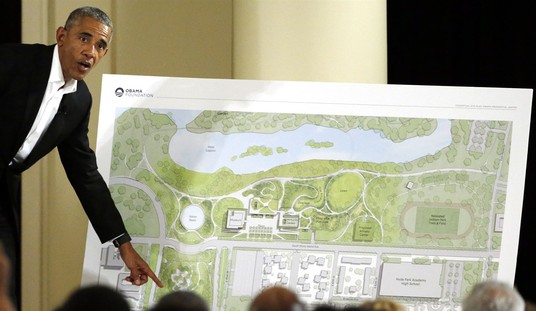Eleven suspected Islamic extremists of South Asian origin have gone on trial in Spain over an alleged plot to stage suicide attacks on the Barcelona subway system. Spanish prosecutors allege that the defendants, nine Pakistanis and two Indians, were acting on orders from the Tehrik-e-Taliban Pakistan (TTP), a Pakistani Taliban group linked to al-Qaeda, and were motivated by their opposition to the presence of Spanish troops in Afghanistan.
Although most counterterrorism experts familiar with the details of the case say the plot was very real, the case has been mired in controversy ever since the scheme was first uncovered in January 2008.
At issue is whether the attack was really as imminent as the government of Socialist Prime Minister José Luis Rodríguez Zapatero initially claimed it was; or whether Spanish security officials, facing political pressure to secure a counterterrorism victory for the incumbent Zapatero just weeks before national elections in March 2008, acted too hastily, thus interrupting an ongoing intelligence operation and leaving Spanish prosecutors with precious little hard evidence as the case now goes to trial.
Spanish authorities initially said the plot was foiled after one member of the cell who was designated to blow himself up got cold feet and warned police. Most of the accused were arrested in Barcelona on January 18, 2008, in raids during which police found some bomb-making equipment but only 20 grams — about one ounce — of explosives.
Immediately after the arrests, Attorney General Cándido Conde-Pumpido said the Zapatero government had stopped an imminent attack, which was to have been carried out during the weekend of January 18-20. But just a few days later Interior Minister Alfredo Pérez Rubalcaba said that given the small amount of explosives seized by the police, “there are doubts” about how close the cell actually was to acting.
A few days after that, the Spanish newspaper El País reported that the “informant” was really a French intelligence operative, now identified as F1, who had arrived in Barcelona on a train from France in order to infiltrate the cell. Although Spanish authorities kept F1’s name secret, they passed information about F1 on to El País, effectively outing F1’s identity to the others involved in the plot. This, in turn, infuriated French counterterrorism officials, who said Spanish haste made waste of the entire operation and also destroyed a valuable intelligence asset for future probes into Islamist activities in Europe.
At the trial, which began at the National Court in Madrid on November 12, 2009, one of the alleged leaders of the cell, Mohammad Ayub Elahi Bibi, 65, denied any involvement in the plot. He said that he had lived in Barcelona, where he has a family, since 1974 and that he practiced a peaceful version of Islam.
Another suspected cell member, Qadeer Malik, 33, also denied the charges, saying he has “more respect for Spain than Pakistan” and is “one thousand percent against violent Islamists.” He also said that he had never even heard of the word Taliban until he moved to Spain in 2001.
Malik, who has been accused of belonging to a part of the cell tasked with making bombs for the attacks, told the National Court that he delivers butane gas canisters and does not know anything about electronics or chemicals. “I don’t even know how to connect two cables,” he said.
The main ringleader of the alleged plot, Maroof Ahmed Mirza, a 40-year-old imam at a mosque in downtown Barcelona, has refused to testify.
In the original indictment which was handed down in June 2009, Judge Ismael Moreno, the investigating magistrate, said the cell had “acquired operational capability at a human level and was close to achieving full technical capability in making explosives.”
In an October 2009 document outlining the charges, prosecutor Vicente González–Mota said the suspects “were preparing and organizing a series of terrorist attacks in Europe that would start in Barcelona.” The document says that police found timers, steel balls, and air-gun pellets to serve as shrapnel, and other material for making bombs. But the charge sheet also reiterates that police found only a few grams of white powder that came from emptying out fireworks.
This may explain why prosecutors have not charged the defendants with actually conspiring to organize a terrorist attack. Instead, they have been charged with lesser crimes of belonging to a terrorist group, possessing explosives, and falsifying official documents.
On the first day of the trial, defense attorney Jacobo Teijelo Casanova said: “There was no bomb in Barcelona. The police said there would also be bombs elsewhere in Europe, but there were not. Not even arrests. Their argument is full of holes.”
At this point, the only thing all sides agree upon is that the prosecution’s entire case rests almost exclusively on the testimony of F1.
Spanish prosecutors say the cell acted under the inspiration of the TTP, led at the time by Baitullah Mehsud, who was killed in a CIA drone attack in August 2009. Plans for the Barcelona attack were later claimed in a video by Maulvi Omar, a TTP spokesman who has since been captured by Pakistani security forces. In the video, Omar also criticized the presence of Spanish troops in Afghanistan.
Prosecutors say F1 joined the TTP from France, later received military training in Pakistan, and was finally sent to Barcelona, where he met the other suspects, learned of their plans, and quickly informed Spanish authorities. Prosecutors also allege that after the Barcelona attack, Mehsud planned to issue demands, which if unmet would result in further attacks in other European countries.
The big question now is whether prosecutors have enough hard evidence to make the charges against the defendants stick. Indeed, Spain’s legal and judicial system has been criticized for its poor track record on prosecuting terrorism suspects.
For example, although more than 300 suspected Islamic extremists have been arrested in Spain since the Madrid commuter train bombings that killed 191 people and wounded more than 1,800 on March 11, 2004, only a few of them have been prosecuted.
In October 2007, Spanish prosecutors were able to secure only three murder verdicts among the 28 defendants guilty of involvement in the Madrid bombings. Moreover, Rabei Osman, an Egyptian accused of masterminding the attacks, was acquitted because much of the evidence against him was circumstantial.
Spanish judges often avoid relying on circumstantial evidence because several high-profile terrorism cases have been overturned on appeal, including a case directly involving the United States. In June 2006, the Spanish Supreme Court overturned the sentence of several members of a Spanish cell accused of involvement in the attacks on September 11, 2001.
The current trial is set to end on November 30. But many Spaniards are already guessing that the defendants will either walk free or receive light sentences.









Join the conversation as a VIP Member